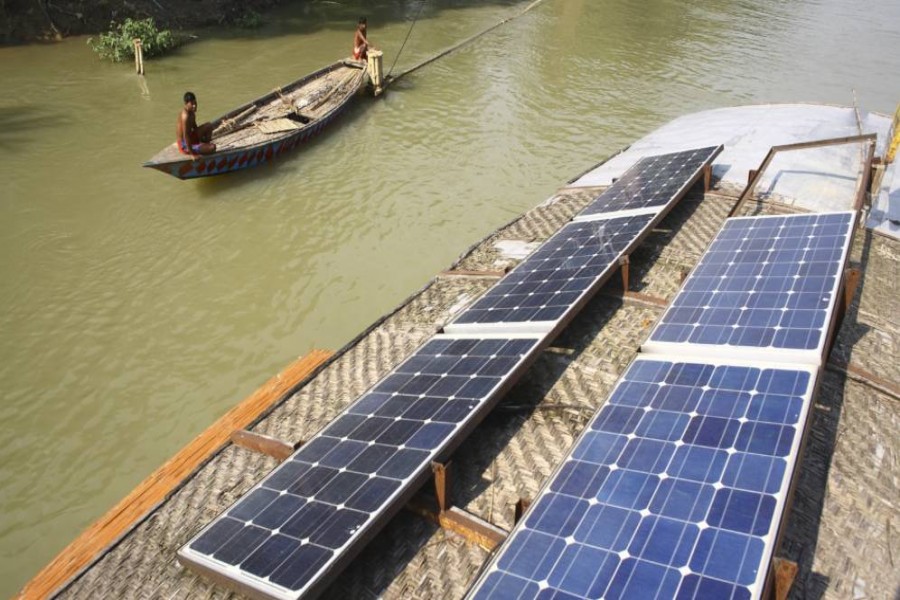Clear understandings from the Bangladesh government’s recently released Eight Five-Year Plan (8FYP) need to be incorporated into the new energy and power master plan currently under development by the Japan International Cooperation Agency (JICA) to drive zero carbon transformation and financial sustainability in the energy system.
A new report from the Institute for Energy Economics and Financial Analysis (IEEFA) made the observation. IEEFA on Monday released the report titled ‘Bangladesh Must Plan for the Energy Transition to Renewables Expectations From the Upcoming Integrated Energy and Power Master Plan,’
In this connection, the institute issued a press statement quoting Simon Nicholas, the author of the report who is also an energy finance analyst.
Simon Nicholas said that the new Integrated Energy and Power Master Plan (IEPMP), if aligned to the government’s new five-year plan, will abandon coal and increased LNG commitment in favour of cheaper low emission renewables.
“The 8th Five-Year Plan clearly acknowledges Bangladesh’s power overcapacity problem as well as solutions to address it,” he added.
“The financial sustainability of the power system is currently seriously jeopardised by heavy subsidisation and ballooning capacity payments to fossil-fuelled power producers, stretching the power system’s already weakened financial position,” Nicholas continued.
He also mentioned that increased reliance on expensive imported coal and Liquefied natural gas (LNG) is a burden and the government simply can’t afford to wear going forward.
“Any increased reliance on coal and LNG risks seeing electricity costs for energy consumers rise even further at a time when ever-cheaper solar and wind power is available,” he added.
The energy analyst further argued that the Japanese developers of Bangladesh’s new Integrated Energy and Power Master Plan have the platinum opportunity to align their thinking with the insightfulness of the government’s 8FYP.”
Nicholas drew from the plan targeting a least-cost power generation system to provide a blueprint for developers of the new plan and suggested that JICA should: (i) prioritise grid investments to make better use of existing power capacity; (ii) prevent the continued over-build of new power capacity by relying on more realistic power demand growth forecasts; (iii) significantly scale up of renewable energy ambition to benefit from the rapid decline of lower-cost solar and wind tariffs and to meet demand growth and energy efficiency goals; (iv) plan for the roll-out of power storage technologies like batteries that can store renewable energy; (v) abandon the expensive pipeline of coalfired power plants yet to begin construction and limit further additions of large power plants, meaning JICA should not provide funding for the Matarbari-2 coal power proposal - this project should be amongst those cancelled; and (vi) not replace coal power proposals with price-volatile LNG-fired power given LNG’s expense and that its full life cycle emissions are comparable to that of coal.
“Bangladesh's five-year economic plan correctly identifies the various issues and opportunities faced by the power system. The new energy and power master plan being developed by Japan must now reflect this new energy reality,” added Nicholas.
IEEFA (www.ieefa.org) examines issues related to energy markets, trends, and policies. The institute’s mission is to accelerate the transition to a diverse, sustainable and profitable energy economy.


